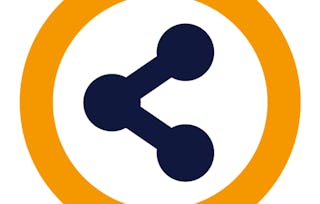Since Antiquity, scholars have appreciated the importance of communication: as social beings, we cannot exist without communication. We need to interact with people around us, to make sense of the world and to position ourselves in a wider social and cultural reality. In this course, we look at how and why communication evolved as a science and reflect on today’s dominant paradigms. The course also extends beyond the boundaries of communication science itself, exploring dimensions of history, sociology and psychology. Join our class, together with people all over the world.

Introduction to Communication Science

Introduction to Communication Science

Instructor: Rutger de Graaf
144,728 already enrolled
Included with
1,924 reviews
Skills you'll gain
Details to know

Add to your LinkedIn profile
9 assignments
See how employees at top companies are mastering in-demand skills

There are 4 modules in this course
In this introduction to the course I will briefly introduce the field of communication science and discuss some basic models that will serve as guidelines to the rest of the course. Also, they explore the historical roots of the science of communication. I will discuss the development of communication theory and the evolution of the media landscape in Antiquity, Medieval and Early Modern times.
What's included
16 videos8 readings2 assignments
The linear effect-oriented approach is discussed and how it developed in the twentieth century. Evolving from a belief in all-powerful effects after World War I to a more nuanced negotiated effects perspective in the sixties.
What's included
16 videos3 readings2 assignments
This covers theoretical approaches that understand communication processes as social and cultural forces, as building blocks of reality, and a binding element of power in society.
What's included
16 videos2 readings1 assignment
What's included
1 video2 readings4 assignments
Instructor

Offered by
Explore more from Governance and Society
 Status: Preview
Status: PreviewErasmus University Rotterdam
 Status: Free Trial
Status: Free TrialUniversity of California, Irvine
 Status: Preview
Status: PreviewInstitut Mines-Télécom
 Status: Free Trial
Status: Free TrialUniversity of Colorado Boulder
Why people choose Coursera for their career

Felipe M.

Jennifer J.

Larry W.

Chaitanya A.
Learner reviews
- 5 stars
78.15%
- 4 stars
16.84%
- 3 stars
3.58%
- 2 stars
0.67%
- 1 star
0.72%
Showing 3 of 1924
Reviewed on Jun 24, 2020
It was an incredible experience. All the video lectures were very informative with great practical examples that help understand each topic in detail.
Reviewed on Dec 31, 2015
Helpful introduction basic theories and approaches in the Communication Sciences, which were explained clearly for those new to the field.
Reviewed on Feb 22, 2020
Short and concise course to educate oneself about dynamics of communication in society. Quiz questions are very well adapted to check the understanding of the topics.

Open new doors with Coursera Plus
Unlimited access to 10,000+ world-class courses, hands-on projects, and job-ready certificate programs - all included in your subscription
Advance your career with an online degree
Earn a degree from world-class universities - 100% online
Join over 3,400 global companies that choose Coursera for Business
Upskill your employees to excel in the digital economy
Frequently asked questions
To access the course materials, assignments and to earn a Certificate, you will need to purchase the Certificate experience when you enroll in a course. You can try a Free Trial instead, or apply for Financial Aid. The course may offer 'Full Course, No Certificate' instead. This option lets you see all course materials, submit required assessments, and get a final grade. This also means that you will not be able to purchase a Certificate experience.
When you purchase a Certificate you get access to all course materials, including graded assignments. Upon completing the course, your electronic Certificate will be added to your Accomplishments page - from there, you can print your Certificate or add it to your LinkedIn profile.
Yes. In select learning programs, you can apply for financial aid or a scholarship if you can’t afford the enrollment fee. If fin aid or scholarship is available for your learning program selection, you’ll find a link to apply on the description page.
More questions
Financial aid available,

